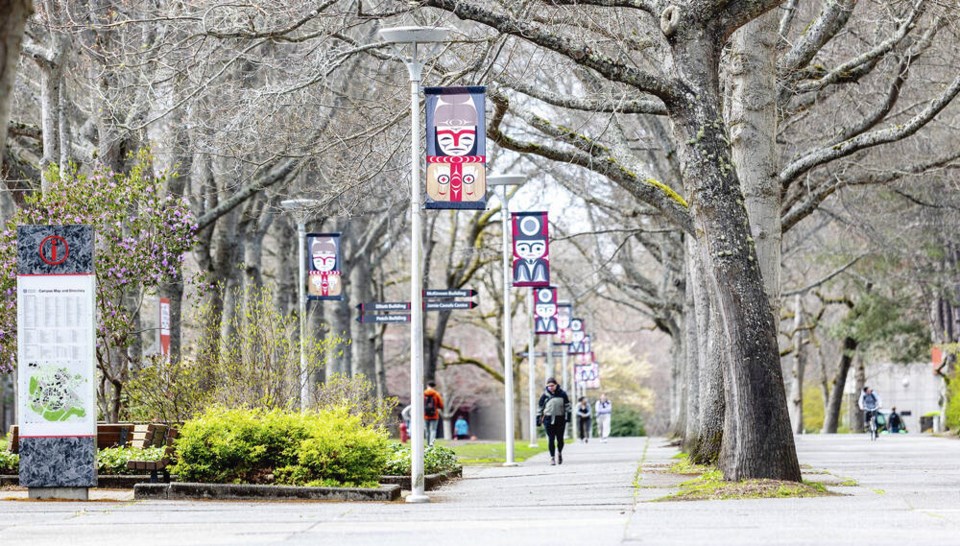A group of post-secondary unions have penned an open letter to the premier and the minister responsible for post-secondary education urging increased funding to offset recent budget cuts resulting in job losses.
The University of Victoria’s $488-million budget for 2023-2024 represents a four per cent budget cut. The cuts affected about 100 positions out of roughly 5,000 employees, a university spokesperson said. Roughly half of those 100 positions have been unfilled as a result of a hiring pause last fall and will remain vacant. About 25 affected positions are vacant due to retirements, and the remaining roughly 25 are a result of voluntary and involuntary layoffs, the university said.
The budget cuts and layoffs are “devastating” to workers who lose their jobs and have detrimental effects on academics by reducing the number of classes that can be offered, reducing supports to help instructors and decreasing the quality of education for students by increasing workloads on remaining employees, says the open letter, signed by 11 unions, including six representing members at UVic.
Unions representing North Island College, Vancouver Island University and Royal Roads have also signed on.
The unions say universities and colleges in B.C. have become too reliant on tuition fees, especially from international students, which has created financial instability when enrolment fluctuates.
“When significant declines in enrolment occur, post-secondary institutions are forced to slash budgets and lay off staff. The provincial government needs to intervene and stabilize the post-secondary system.”
The unions say that “significantly” increased government funding for the post-secondary sector is the only viable long-term solution. They suggested short-term moves to improve international-student enrolment by making application processes easier, providing bridge funds to mitigate funding shortfalls as a result of decreases in enrolment, and encourage universities and colleges to convert sessional lecturers to more secure faculty positions rather than laying them off.
Morale on campus at UVic as a result of budget cuts is “quite bleak,” said Sam Montgomery, labour relations officer at the Professional Employees Association.
“After three years working through a pandemic, people were already burned out, under resourced. So this is adding to their workload intensification,” Montgomery said.
Five members of the Professional Employees Association have been involuntarily laid off, she said.
“This feels like a long-term solution to a short-term problem. And the impacts of these cuts will resonate for years,” Montgomery said.
Nearly all departments at UVic contributed to budget cuts, with the exception of the vice-president Indigenous portfolio and some student supports like financial aid, and health and wellness.
The university didn’t answer questions about whether class sizes will grow or fewer courses will be offered as a result of staff cuts but said it doesn’t anticipate students will notice the impacts of budget cuts.
“Deans and other leaders considered several factors when determining budget reductions, including program requirements, student demand and shifting enrolment patterns,” it said.
The university said it is “cautiously optimistic” about enrolment rebounding after international enrolment was decimated during the pandemic.
>>> To comment on this article, write a letter to the editor: [email protected]



